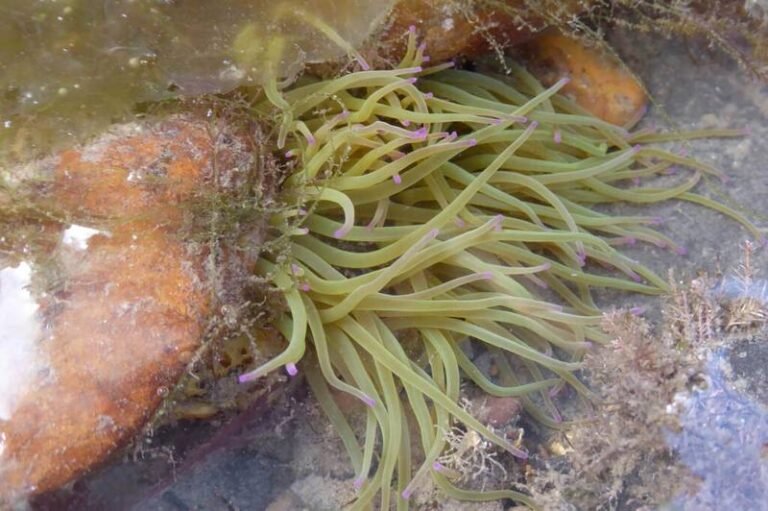The Impact of Artificial Light at Night on Marine Species
A new study sheds light on the harmful effects of artificial light at night on immobile marine species, specifically the snakelocks anemone. The study, titled “The disruption of a symbiotic sea anemone by light pollution: Non-linear effects on zooxanthellae and molecular indicators,” was recently published in Science of the Total Environment. This collaborative research effort involved scientists from the University of Prince Edward Island, Plymouth Marine Laboratory, and the University of Exeter.
Understanding the Impact of Artificial Light at Night
Artificial light at night (ALAN) is a growing concern in marine ecosystems. Despite its increasing prevalence, there are still significant research gaps in understanding how various marine organisms are affected by ALAN, especially when combined with other stressors. With marine organisms already facing challenges like warming, acidification, and pollution, the impact of ALAN on these species is crucial to investigate.
Research has shown that nearly 76% of the seafloor near well-lit cities is affected by biologically-relevant light pollution, a trend that is expected to rise in the future. This highlights the urgent need to study the effects of ALAN on marine life.
Findings of the Study
The study revealed a significant negative impact of high ALAN levels on the symbiotic algae (zooxanthellae) living on the snakelocks anemone, as well as on the enzyme superoxide dismutase, which helps both the anemone and algae cope with oxidative stress.
By utilizing PML’s Marine Artificial Light at Night Research (MARLAN) Facility and a unique tidal experiment system, researchers were able to mimic natural light and tidal conditions for the anemones. This allowed the organisms to acclimatize before introducing experimental ALAN levels.
Results showed that anemones exposed to mild ALAN (10 lx) had higher zooxanthellae counts compared to natural conditions, while those under strong ALAN (50 lx) had significantly lower counts. The decline in zooxanthellae at higher ALAN levels suggests a threshold after which photoinhibition and damage to the symbiotic relationship occur.
Implications of the Study
These findings suggest that ALAN can disrupt the delicate balance between the snakelocks anemone and its symbiotic algae, potentially leading to bleaching and stress responses in the organisms. Understanding the impact of ALAN on marine species is crucial for conservation efforts and sustainable management of marine environments.
As artificial light continues to encroach on marine habitats, further research is needed to mitigate its harmful effects on vulnerable species like the snakelocks anemone. By raising awareness and implementing measures to reduce light pollution, we can protect marine ecosystems for future generations.

